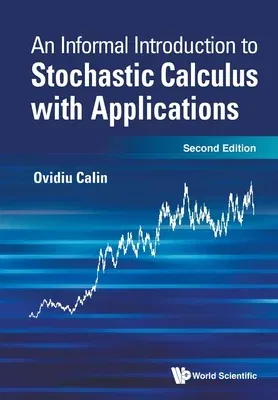Most branches of science involving random fluctuations can be approached
by Stochastic Calculus. These include, but are not limited to, signal
processing, noise filtering, stochastic control, optimal stopping,
electrical circuits, financial markets, molecular chemistry, population
dynamics, etc. All these applications assume a strong mathematical
background, which in general takes a long time to develop. Stochastic
Calculus is not an easy to grasp theory, and in general, requires
acquaintance with the probability, analysis and measure theory.
The goal of this book is to present Stochastic Calculus at an
introductory level and not at its maximum mathematical detail. The
author's goal was to capture as much as possible the spirit of
elementary deterministic Calculus, at which students have been already
exposed. This assumes a presentation that mimics similar properties of
deterministic Calculus, which facilitates understanding of more
complicated topics of Stochastic Calculus.
The second edition contains several new features that improved the first
edition both qualitatively and quantitatively. First, two more chapters
have been added, Chapter 12 and Chapter 13, dealing with applications of
stochastic processes in Electrochemistry and global optimization
methods.
This edition contains also a final chapter material containing fully
solved review problems and provides solutions, or at least valuable
hints, to all proposed problems. The present edition contains a total of
about 250 exercises.
This edition has also improved presentation from the first edition in
several chapters, including new material.

